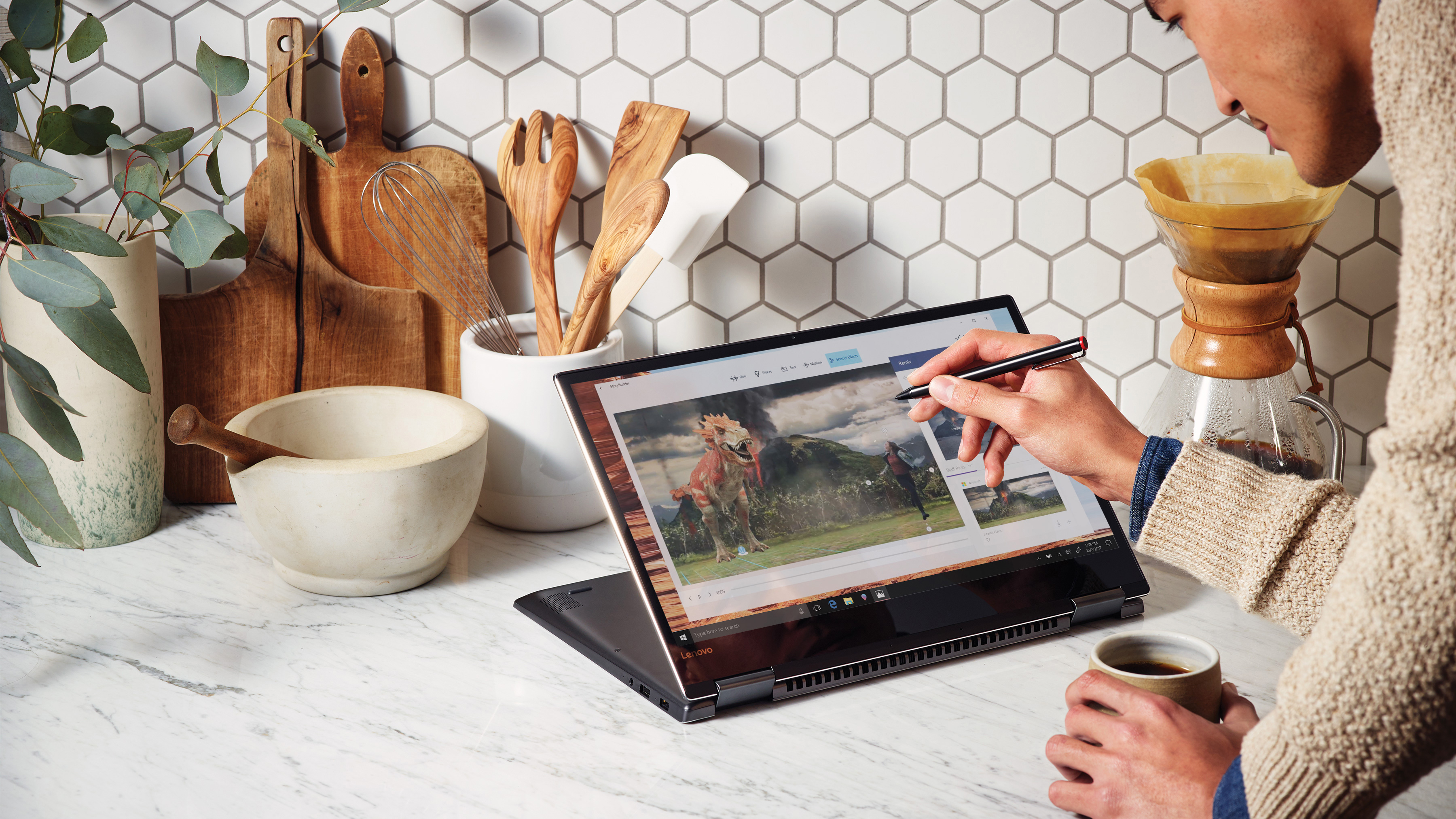Why you can trust TechRadar
Microsoft is still keen to get developers to build new mobile-style apps for Windows 10 that are more secure, don't get to do things that affect performance and battery life, can be uninstalled with a single click, and can potentially run on multiple devices. The hope is that developers will design their apps for the Universal Windows Platform, and they'll work across PCs, Windows 10 on smartphones, and Xbox as well – basically on every screen size.
There are tools to assist developers with converting Android and iOS apps, and even desktop PC apps. Businesses can deploy apps from their own versions of the Windows Store. This is all handled from the Business Store Portal, which will handles software license, centralized payment info and more.
Universal Apps and the new Windows Store
Universal apps are the latest version of what Microsoft was calling Metro, Modern and Store apps in Windows 8. Apps written for Windows 8 will still run. However, with the Charms bar and the touch gestures for opening app controls gone, Microsoft has crammed the commands for any apps that haven't been rewritten for Windows 10 in a rather awkward menu bar of apps. Apps that have been rewritten tend to use the hamburger menu, which gets frustrating to use on a desktop PC where there is plenty of space on-screen for navigation but the hamburger menu still hides the options.
Windows 10 has built a solid library of apps – alongside everyday apps like Amazon and VLC, Microsoft has started shipping Xbox One Play Anywhere games through the Windows 10 Store. Don’t get us wrong; the Store is smaller than iOS and Android equivalents, but it’s getting there.
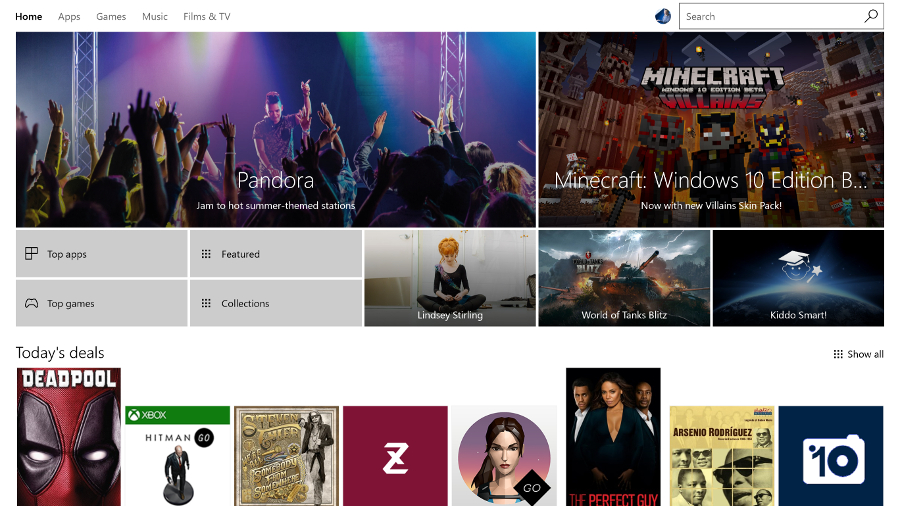
Additionally, several redesigns later, the Store looks better than ever, full of top picks, featured apps, lists and collections. It feels like there are almost as many ways to look through the apps as there are interesting apps to look for.
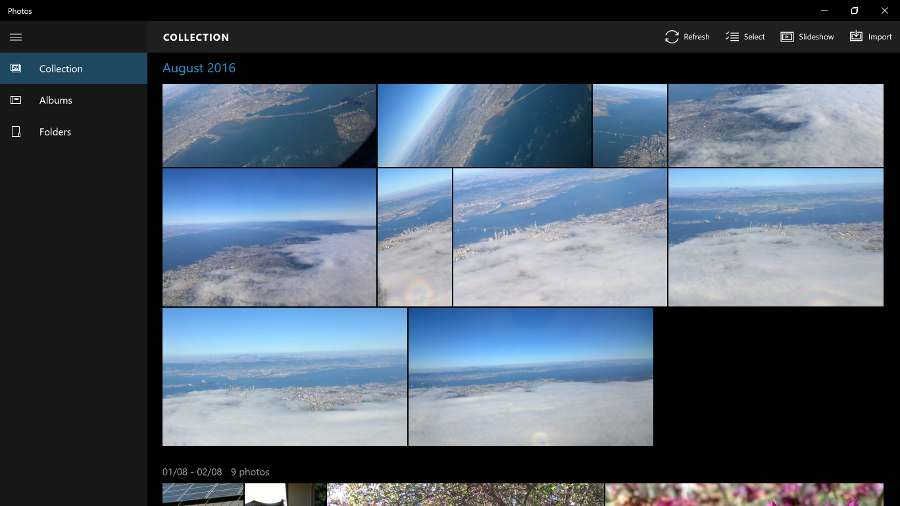
Built-in Windows 10 apps
The operating system's built-in apps are still improving, and the Windows 10 October Update adds some extras.
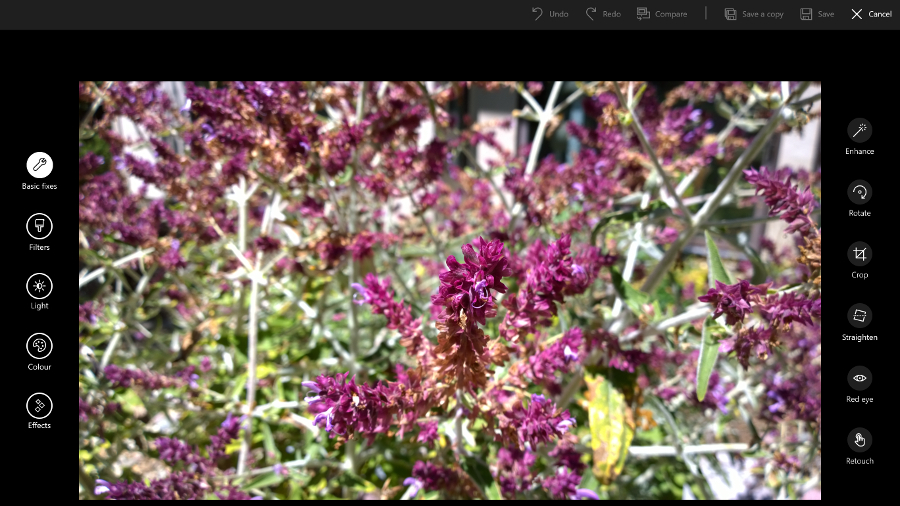
The News app brings a curated News experience natively to Windows 10 and is customizable based on your interests. This is just as big as the Photos app included with the Anniversary Update that shows you all the pictures on your PC and in your OneDrive account and boasts some convenient editing tools. And, while the Mail and Calendar apps don't match Outlook – either the desktop or the smartphone versions, they're perfectly functional and competent apps.
Sign up for breaking news, reviews, opinion, top tech deals, and more.
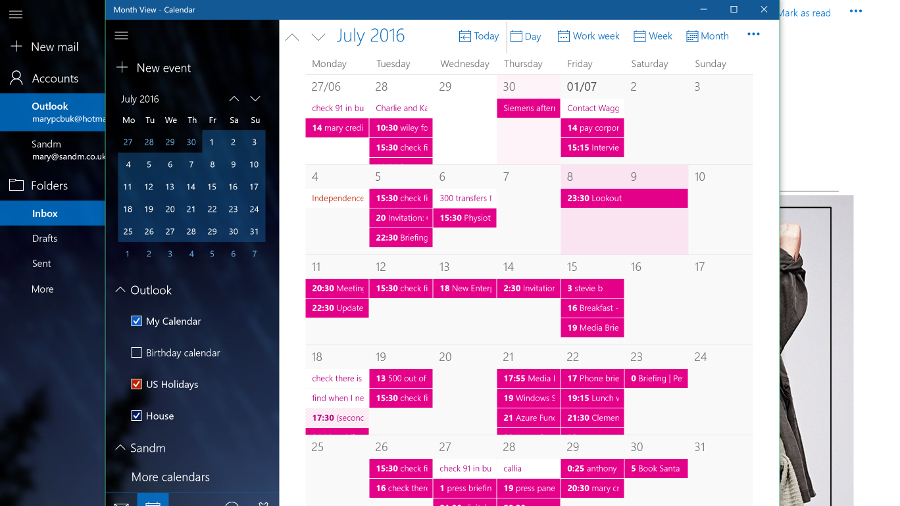
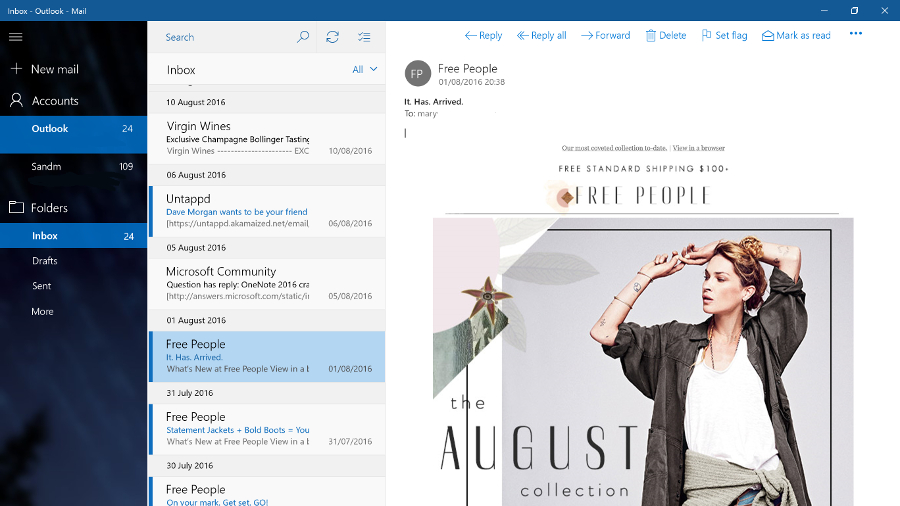
Sport and News stay useful however, even if they still feel a little superfluous. They start quickly, but you may use them most as live tiles in the Start menu. Diehard sports fans may not get enough information from the Sport app, but News is a decent aggregator of stories (the page covering local news sources is especially good).
The Money app comes in handy if you track shares or want to follow the market. The Reader app, on the other hand, it's no longer installed by default. However, it is still available for download at the store, if you require it.
Maps just keeps getting better and better. Since the Anniversary Update, you can see multiple maps and locations on different tabs, view traffic, accidents and traffic cameras – and even draw routes on a map with your finger or a pen, then measure the distance or get directions (which is far easier than right clicking and dragging pushpins to get the route you want).
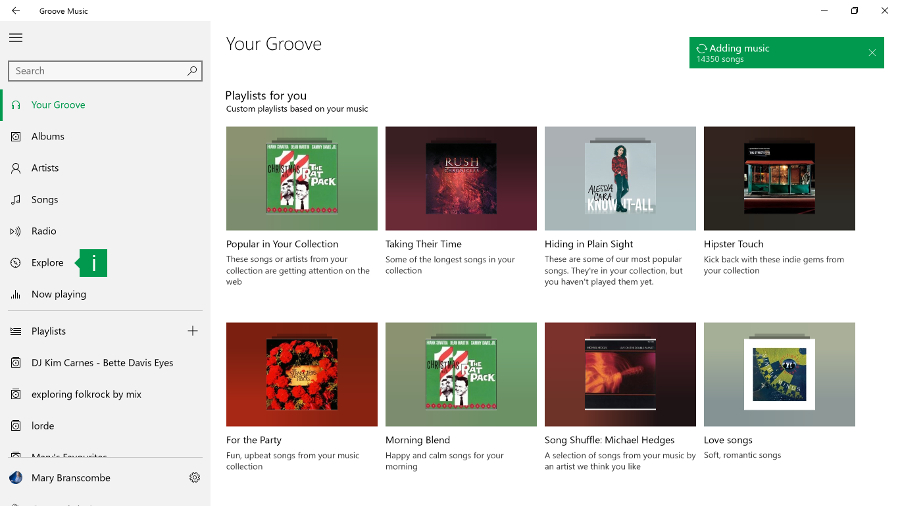
Groove has come on leaps and bounds since earlier versions of the app. It finally has a thumbnail media player control that pops up when you hover over the Groove icon in the task bar when there's music playing. Since the Anniversary Update, we particularly like the Your Groove playlists that automatically create various playlists of your tracks – including long tracks, tracks that are getting played a lot on the Groove service, tracks you haven't listened to in a while, tracks to help you cope with Monday mornings. They change frequently, but you can save them for later access.
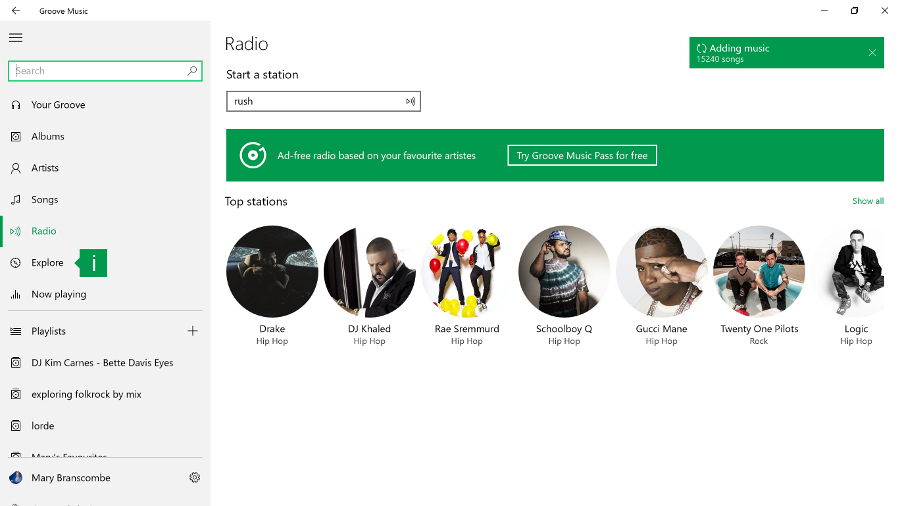
Unfortunately, you can't create your own smart playlists – something even the Zune Player had and Windows Media Player can do (let alone iTunes). Even so, Groove is certainly worth trying for playing your music, if not for managing it.
Another app that's dramatically improved is Skype Preview, which is automatically installed in Anniversary Update and replaces the separate Skype Video and Messaging apps (but you can keep the desktop Skype app too).
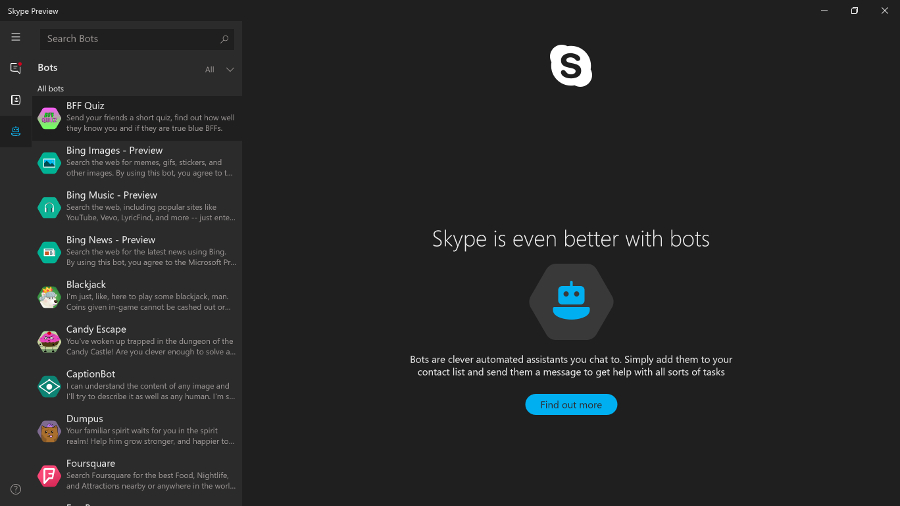
If you tried an earlier version of this, don't despair; it now has an excellent set of features, not to mention is fast and responsive. It also has the dialler that was missing in early versions, alongside video calls and chat (both of which can be one to one or group conversations).
It's very well integrated into Windows 10 – you can reply to chat messages straight from the Action Center notification, and you don't need to have the app running to receive calls. You can also try out Skype bots; the Foursquare and IFTTT bots look interesting, but they are all still fairly basic.
Images Credit: Microsoft
Current page: Core Windows 10 apps
Prev Page Windows 10 UI, Cortana and more Next Page Other Windows 10 features
Joe Osborne is the Senior Technology Editor at Insider Inc. His role is to leads the technology coverage team for the Business Insider Shopping team, facilitating expert reviews, comprehensive buying guides, snap deals news and more. Previously, Joe was TechRadar's US computing editor, leading reviews of everything from gaming PCs to internal components and accessories. In his spare time, Joe is a renowned Dungeons and Dragons dungeon master – and arguably the nicest man in tech.
